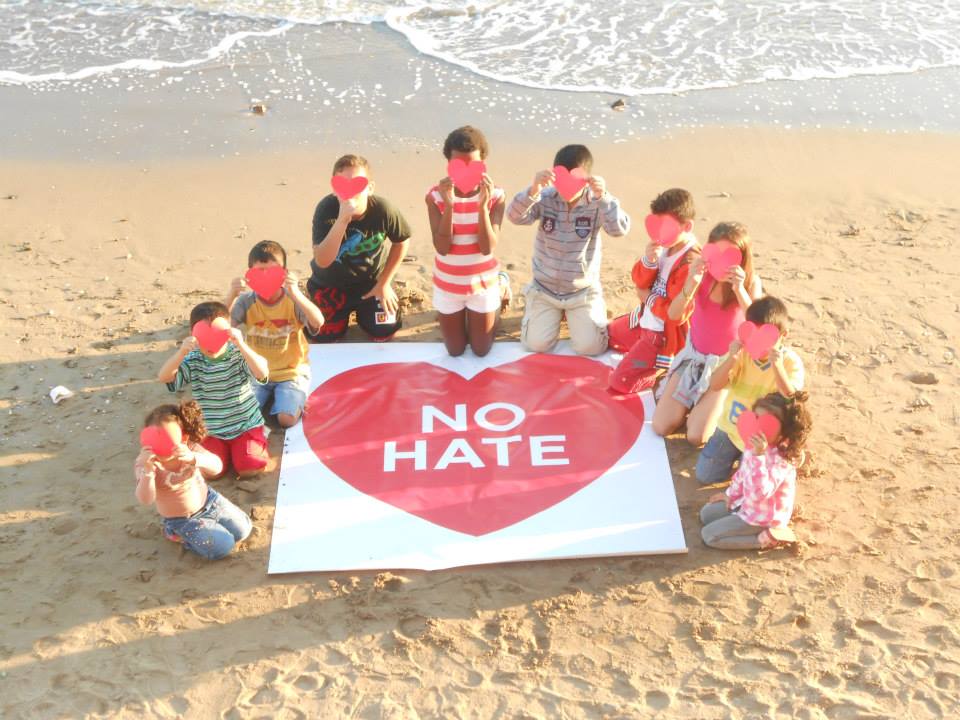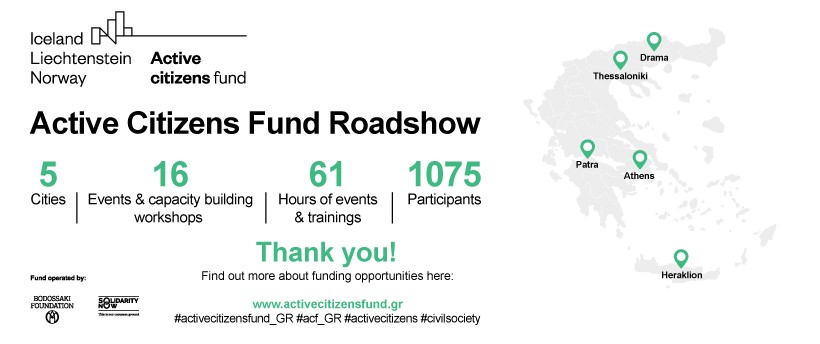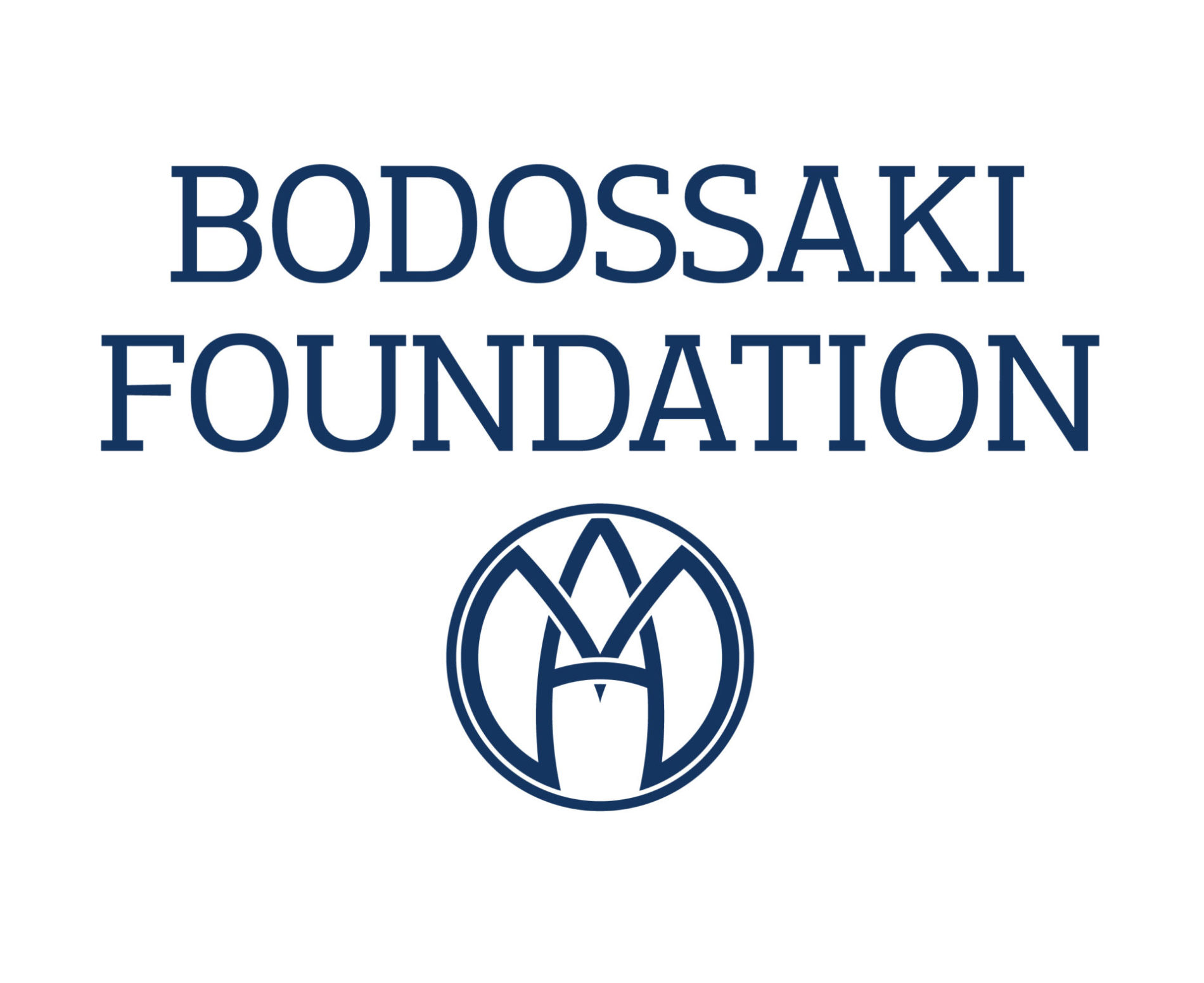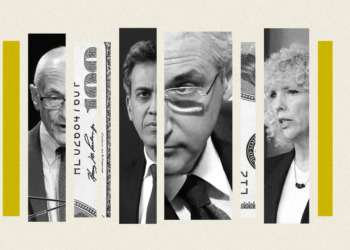Today we are looking at Bodossaki Foundation who is a key fund operator of grants and CSR programs in Greece. The foundation is a leading private philanthropic foundation in Greece, founded through the legacy of the successful industrialist Prodromos – Bodossakis Athanasiadis in 1972.
Related: Investing in the future | Ethical and Financial Investing | Impact Investing In Combating Climate Change
In terms of impact, the foundation has to date, distributed more than 450 million euros of funding to meet a wide range of social needs in Greece, has offered more than 1000 grants and 2500 scholarships. Having traditionally supported education, health and the environment for more than 30 years, in 2012 Bodossaki took the strategic decision to also focus on strengthening civil society in Greece. The ambition to expand its support portfolio to cover a greater range of contemporary social needs and the reality of seeing its resources reduce by 33% due to heavy taxation imposed during the financial crisis led to a major strategic decision: to utilise in addition to its own resources also external resources, secured through strategic corporate partnerships and the EEA Grants, in order to meet the increased social needs and fulfil its mission.
The challenge of having limited funding capacity at a time of increased social need is not only experienced by Bodossaki Foundation, but also reflects the pressures many foundations face in contemporary Europe. Across Europe, many governments reduce their funding and that gradually leads to a new reality, whereby foundations have now become the most important source of funding for the voluntary sector. A 2017 research by New Philanthropy Capital and Lloyds Bank Foundation reported that, in the UK, the value of grants made by independent philanthropic foundations – at some £6.5 billion pounds – now exceeds the value of grants made by the government to the voluntary sector. This situation is also very true for Greece where philanthropic foundations have, for some years now, been the main funders of the voluntary sector.
The challenge of having to respond more effectively to increased social needs with limited resources led Bodossaki Foundation to re-imagine what its role could be and how it could best leverage its resources. Following a period of critical reflection, Bodossaki implemented a series of strategic steps in order to maximize its impact. Thanks to those steps, described in detail below, the total number of activities, grants and partnerships of Bodossaki Foundation actually increased significantly, despite the initial decreased core funding.
STEP 1: Increasing support for the Greek civil society
The first strategic step was to increase the focus on strengthening Greek civil society, including through capacity building. This was added as the fourth strategic pillar to the mission of Bodossaki Foundation in 2012, in recognition of the potential of civil society both to help to alleviate the effects of the crisis but also to address some of its root causes. This new strategic direction enabled Bodossaki Foundation to bid for, and eventually win, the role of Fund Operator for the EEA Grants NGO Programme for Greece, named “We are all Citizens”.
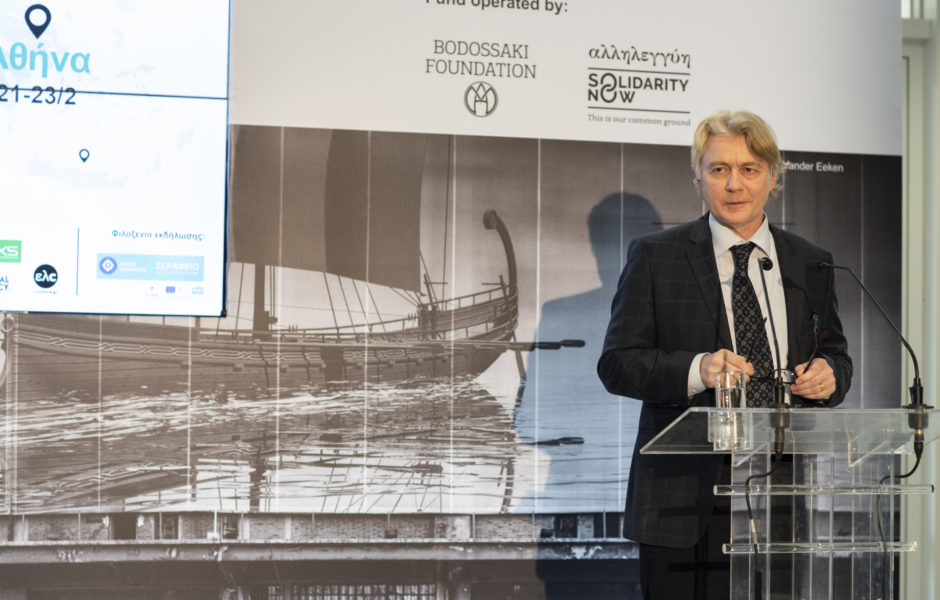
Through the 7.34M euros of funding provided by Norway, Iceland and Liechtenstein, the Foundation managed between 2014 – 2017 the implementation of 75 projects across the country. As a result, more than 205,000 people benefited directly from the funding and more than 100 civil society organizations directly got involved in the implementation of the program. Equally important, was the impact achieved for the involved organizations as it was the first time they had ever participated in a comprehensive capacity building program, aiming to increase their effectiveness and sustainability in the years to follow the funding period. The Foundation continues to invest in the non-financial support and capacity building of civil society organizations through its award-winning NGO incubator called Social Dynamo, which since its inception in 2016 has directly supported more than 430 NGOs and active citizens groups.
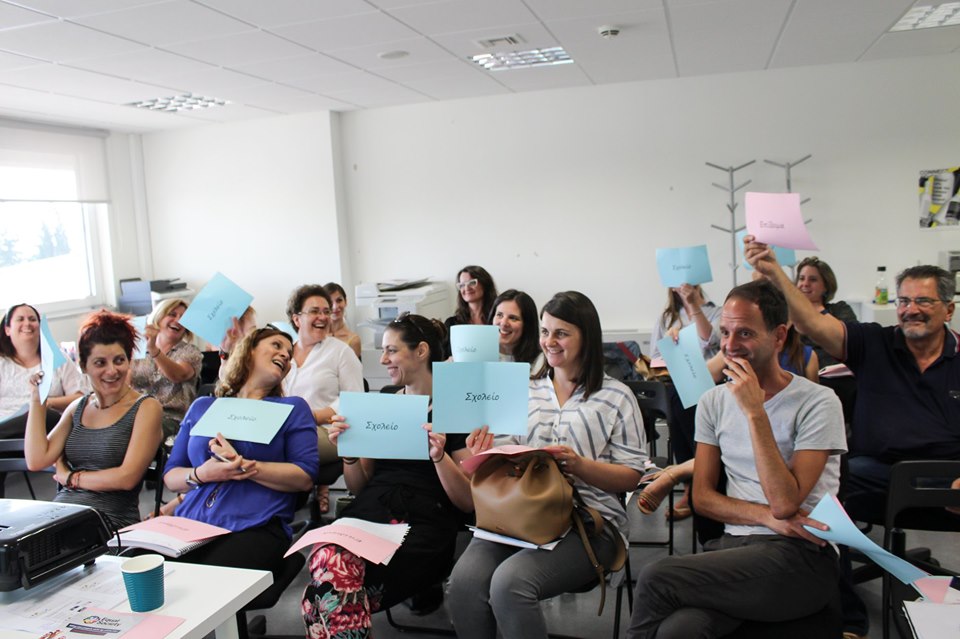
Having achieved a remarkable impact as a Fund Operator during the 2014-2017 period, Bodossaki was chosen in , in a consortium with SolidarityNow, as the Fund Operator for a new EEA Grants civil society program called “Active Citizens Fund” amounting to 12 million euros of funding. The program, funded by Iceland Norway and Lichtenstein, aims to develop the sustainability and capacity of the civil society sector in Greece, and to strengthen its role in promoting and safeguarding democratic procedures, active citizenship, and human rights. Already, 42 projects have been selected for funding and the Foundation is expected to manage a total of 120 projects implemented throughout the country until 2024.
STEP 2 Increasing effectiveness
Another important aspect of increasing the impact of the resources of the Foundation was to implement new processes to increase the effectiveness of grant-making.
One new process adopted was a rigorous Social Needs Assessment Methodology that enabled the Foundation to identify and respond more effectively to society’s most pressing needs. The Programme Management Unit conducted regular focus groups relating to the whole spectrum of social needs, with representatives from civil society and other stakeholders. This enabled the Foundation to map urgent needs as they emerged and inform their grant-making.
Through this process, for example, a significant lack of suitable accommodation for unaccompanied refugee children arriving in Greece, was identified and as a result, in 2015 – 2016 approximately 500,000 euros were raised from a number of private and corporate donors to support the operation of 8 shelters and 3 open reception centers across Greece. Most importantly, two new shelters were created that offered improved services to unaccompanied minors. More than 374 children found a safe home and gained the hope and strength to claim a better life.
Other important steps included the introduction of a rigorous system for the monitoring and evaluation of funded projects and the use of a Results-Based Management framework to monitor and measure the impact of grant-making. These new processes also enabled a more effective communication of the impact achieved through the grant-making processes of the Foundation. An ISO certification was also achieved to ensure the highest quality of the management processes employed.
STEP 3 Corporate partnerships and CSR programmes
An equally critical strategic step involved an increased focus on developing strategic partnerships with corporates, which, in turn could enhance the funding capacity of Bodossaki Foundation.
Having received funding from the Coca-Cola Foundation, among other corporate partners, Bodossaki was able to design and implement a rigorous emergency relief program in support of the victims of the Attica wildfires in the summer of 2018.
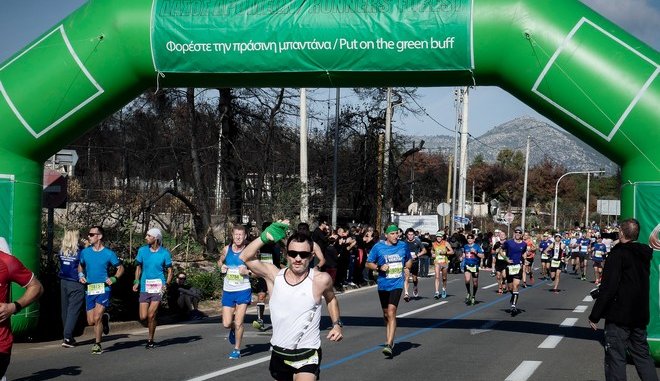
Having the technical expertise and history of long-standing partnerships with NGOs and grassroots organizations across Greece, the Foundation was well-placed to conduct an extensive needs assessment in the area, which included desk research, site visits, as well as consultation meetings with civil society organizations and stakeholders active on the ground. This assessment led to the identification of urgent unmet needs of the population and based on that live information a holistic program was designed. The emergency relief program, which included psychosocial support, financial allowances and food items for the victims, was implemented through trusted and expert NGOs acting as partners on the ground and resulted in a significant impact for both the individual beneficiaries and the local community. The total number of individuals who benefited directly or indirectly by the program exceeded the target value of 1,400 individuals and reached 2,135 individuals. Direct beneficiaries included families that received financial allowances, food items and/or psycho-social services. In addition, the community benefited from the program’s community activities, such as group support sessions, open public debates on tackling trauma in the community. The community also benefited from the refurbishing of one of its sports centers that burnt to the ground because of the fires.
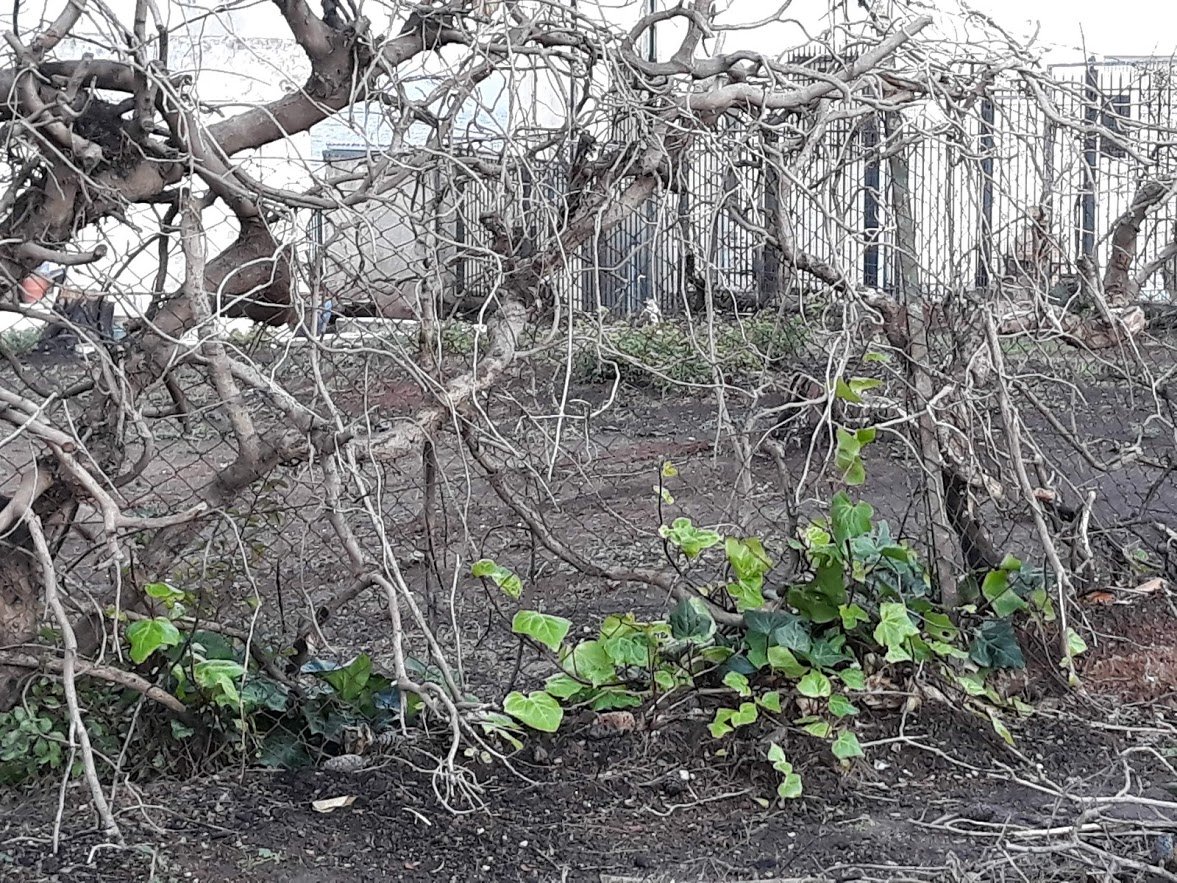
Another example that showcases the importance of corporate strategic partnerships and funding in increasing the impact of the resources of the Foundation is the long-term collaboration it has established with the Trans Adriatic Pipeline (TAP). TAP’s portfolio includes the management of programs in agricultural education and post-graduate and vocational training in the field of energy, worth over 2.6 million euros. Notably, the views of local communities in the 29 municipalities affected by the pipeline, were taken into account when designing and implementing the program. The engagement with local communities was crucial as it ensured that these projects addressed their development priorities in ways that are sustainable whilst also supporting business objectives.
STEP 4: Non-financial support – Capacity Building
In the process of examining how to best utilize resources to increase the overall impact in the community, it became evident that funding allocated to organizations on the ground can only be effective if the organizations themselves are able to absorb that funding and use it to implement effective and sustainable activities.
In Greece the voluntary sector is still in a phase of development. Many organizations still lack basic organizational skills which would allow them to scale up their activities. These organizations would greatly benefit, for example, from capacity building in organizational project and volunteer management, in communications, marketing, and public relations.
To meet this need, the Foundation established Social Dynamo, an NGO incubator for the empowerment of the civil society in Greece, in collaboration with the Municipality of Athens. Within three years of its operation, over 430 organisations have been trained and 70 teams have been incubated. Notably, 100% of the organizations hosted in Social Dynamo demonstrated increased capacity. Social Dynamo has won multiple awards for its innovative work such as the Voluntary Action Award in 2017, 2018 and 2019.
Social Dynamo is in the process of expanding to Thessaloniki, the second-largest city in Greece and aims to create a support network for civil society in the north of Greece in collaboration with the city’s authorities.
As part of the strategic direction to increase the impact of the resources of the Foundation, corporate partners have been invited to act as pro-bono mentors and coaches for the NGOs and grassroots that participate in the programme and over 60 professionals are already supporting Social Dynamo. The Foundation is also in the process of supporting the expansion of Social Dynamo by establishing more corporate strategic partnerships and initiatives so that more NGOs and grassroots organizations outside Athens can benefit from capacity building.
Bodossaki Foundation is uniquely positioned to continue maximizing the impact of its resources (both internal and external) as it has not only won the reputation of being a credible, trusted and transparent partner through its history of long term partnerships with NGOs, grassroots organisations, public stakeholders and corporates but has crucially demonstrated that it has the experience, expertise, and know-how to maximize impact at all stages of the design management and monitoring of grants and/or CSR programs in Greece.
Bodossaki Foundation, established in 1972, is one of the most respected public benefit organisations in Greece. The Foundation has administered so far more than € 450m in order to promote equality in education, healthcare and to assist socially vulnerable groups.
EDITOR’S NOTE: The opinions expressed here by Impakter.com columnists are their own, not those of Impakter.com – Cover photo: Bodossaki Foundation


